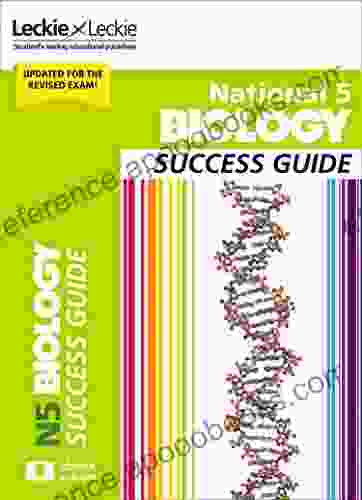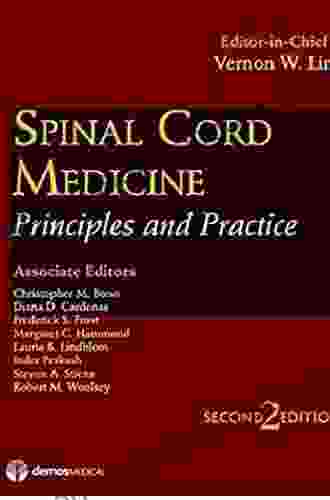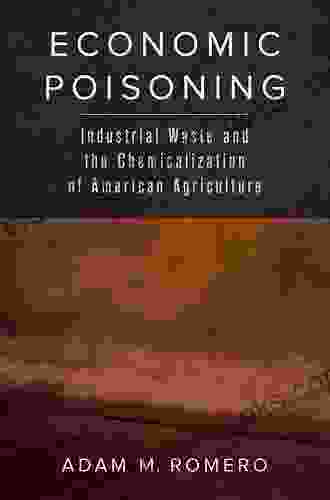Unveiling the Hidden Impacts: Industrial Waste and the Chemicalization of American Agriculture

The American agricultural industry is a cornerstone of the nation's economy and a vital source of sustenance for its citizens. However, the quest for increased productivity and efficiency has led to a reliance on industrial waste and chemical inputs, with significant consequences for the environment, human health, and the future of food production. This article delves into the complex interplay between industrial waste, chemicalization, and the American agricultural system, shedding light on the hidden impacts that have shaped the industry and its implications for the well-being of our society and planet.
The Rise of Industrial Waste and Chemicalization
The advent of the Industrial Revolution in the 19th century brought about a surge in industrial activities, resulting in the generation of vast quantities of waste. These waste products, often laden with toxic chemicals and heavy metals, posed a disposal problem for industries. Faced with limited options for safe and cost-effective disposal, many companies found a solution by diverting their waste to agricultural lands.
5 out of 5
| Language | : | English |
| File size | : | 14735 KB |
| Text-to-Speech | : | Enabled |
| Screen Reader | : | Supported |
| Enhanced typesetting | : | Enabled |
| Word Wise | : | Enabled |
| Print length | : | 271 pages |
| Lending | : | Enabled |
Simultaneously, the agricultural industry was undergoing its own transformation, driven by the need to increase food production to meet the demands of a growing population. This led to the widespread adoption of chemical inputs, such as fertilizers, pesticides, and herbicides, to boost crop yields and combat pests. These chemicals, while effective in enhancing crop production, also came with a hidden environmental toll.
Environmental Degradation and Health Impacts
The disposal of industrial waste on agricultural lands has had severe environmental consequences. Toxic chemicals and heavy metals leach into the soil and groundwater, contaminating water sources and harming aquatic ecosystems. Studies have linked exposure to these pollutants to a range of health problems in humans, including cancer, reproductive issues, and neurological disFree Downloads.
The excessive use of chemical inputs in agriculture has also contributed to soil degradation, loss of biodiversity, and water pollution. Fertilizers can lead to nutrient runoff, causing algal blooms in waterways and hypoxia in water bodies, which can harm fish and other aquatic organisms. Pesticides and herbicides can kill beneficial insects, disrupt ecosystems, and leave residues on food products that pose potential risks to human health.
Social Justice Implications
The chemicalization of American agriculture has also raised concerns about social justice. The negative impacts of industrial waste and chemical inputs are often disproportionately borne by marginalized communities, who are more likely to live near agricultural areas or rely on contaminated water sources. These communities face increased risks of health problems and environmental degradation, exacerbating existing social and economic inequalities.
Alternative Approaches and Sustainable Solutions
Recognizing the urgent need for a more sustainable agricultural system, researchers, farmers, and policymakers are exploring alternative approaches that minimize the use of industrial waste and chemical inputs. These approaches include:
- Organic farming: Prohibits the use of synthetic pesticides, herbicides, and fertilizers, relying instead on natural methods for pest control and soil fertility maintenance.
- Agroecology: Focuses on ecological principles to design farming systems that mimic natural ecosystems, reducing the need for external inputs.
- Precision agriculture: Utilizes advanced technologies to monitor crop health and soil conditions, enabling tailored applications of inputs and minimizing waste.
- Bioremediation: Employing microorganisms or plants to break down and remove pollutants from contaminated soils and water.
Industrial waste and the chemicalization of American agriculture have had profound impacts on the health of our environment, our food system, and our communities. By understanding the hidden costs of these practices, we can work towards a more sustainable agricultural future that prioritizes the long-term well-being of our planet and its people.
Alternative approaches and innovative solutions offer hope for creating a more just and sustainable food system. By embracing these methods, we can reduce our reliance on harmful industrial waste and chemical inputs, protect our environment, improve public health, and ensure a secure and nutritious food supply for generations to come.
5 out of 5
| Language | : | English |
| File size | : | 14735 KB |
| Text-to-Speech | : | Enabled |
| Screen Reader | : | Supported |
| Enhanced typesetting | : | Enabled |
| Word Wise | : | Enabled |
| Print length | : | 271 pages |
| Lending | : | Enabled |
Do you want to contribute by writing guest posts on this blog?
Please contact us and send us a resume of previous articles that you have written.
 Book
Book Novel
Novel Page
Page Chapter
Chapter Text
Text Story
Story Genre
Genre Reader
Reader Library
Library Paperback
Paperback E-book
E-book Magazine
Magazine Newspaper
Newspaper Paragraph
Paragraph Sentence
Sentence Bookmark
Bookmark Shelf
Shelf Glossary
Glossary Bibliography
Bibliography Foreword
Foreword Preface
Preface Synopsis
Synopsis Annotation
Annotation Footnote
Footnote Manuscript
Manuscript Scroll
Scroll Codex
Codex Tome
Tome Bestseller
Bestseller Classics
Classics Library card
Library card Narrative
Narrative Biography
Biography Autobiography
Autobiography Memoir
Memoir Reference
Reference Encyclopedia
Encyclopedia Adam Kelly Morton
Adam Kelly Morton Anna Santos
Anna Santos Paula Darwish
Paula Darwish A M Van Dorn
A M Van Dorn Gerry Baird
Gerry Baird Adam Langer
Adam Langer Wallace Wang
Wallace Wang Doris Kearns Goodwin
Doris Kearns Goodwin R C Majumdar
R C Majumdar A L Lester
A L Lester Abbie Frost
Abbie Frost Angela King
Angela King David Putnam
David Putnam Diana C Mutz
Diana C Mutz L M Sanguinette
L M Sanguinette Alan Zweibel
Alan Zweibel Adam David Russ
Adam David Russ Adam Vines
Adam Vines Arlene James
Arlene James Bethany Bennett
Bethany Bennett
Light bulbAdvertise smarter! Our strategic ad space ensures maximum exposure. Reserve your spot today!

 Kurt VonnegutExplore the Enchanting World of "Light Me Lamp": A Literary Journey of Love,...
Kurt VonnegutExplore the Enchanting World of "Light Me Lamp": A Literary Journey of Love,...
 Zadie SmithComprehensive Guide to Peripheral Nerve Blocks and Ultrasound-Guided Regional...
Zadie SmithComprehensive Guide to Peripheral Nerve Blocks and Ultrasound-Guided Regional... Javier BellFollow ·8.2k
Javier BellFollow ·8.2k Junot DíazFollow ·17.6k
Junot DíazFollow ·17.6k Eliot FosterFollow ·2.6k
Eliot FosterFollow ·2.6k Roger TurnerFollow ·10.4k
Roger TurnerFollow ·10.4k Vince HayesFollow ·13.8k
Vince HayesFollow ·13.8k Keith CoxFollow ·6.1k
Keith CoxFollow ·6.1k Percy Bysshe ShelleyFollow ·3.8k
Percy Bysshe ShelleyFollow ·3.8k Franklin BellFollow ·16.7k
Franklin BellFollow ·16.7k

 Justin Bell
Justin BellUnlock National Biology Success: The Ultimate Guide to...
Mastering the Fundamentals: A Comprehensive...
 Luke Blair
Luke BlairAC/DC: The Early Years with Bon Scott – A Thunderstruck...
In the annals of rock and roll history, few...

 Darren Nelson
Darren NelsonSpinal Cord Medicine Second Edition: The Comprehensive...
The second edition of Spinal Cord Medicine...

 Cole Powell
Cole PowellArabian Horse Training: Unlock the Secrets for a...
Indulge in the captivating world of Arabian...

 Oscar Wilde
Oscar WildeRevise Curriculum For Excellence SQA Exams: The Ultimate...
The Scottish...

 David Peterson
David PetersonEndoscopic Ear Surgery: A Comprehensive Guide for...
Endoscopic Ear...
5 out of 5
| Language | : | English |
| File size | : | 14735 KB |
| Text-to-Speech | : | Enabled |
| Screen Reader | : | Supported |
| Enhanced typesetting | : | Enabled |
| Word Wise | : | Enabled |
| Print length | : | 271 pages |
| Lending | : | Enabled |








